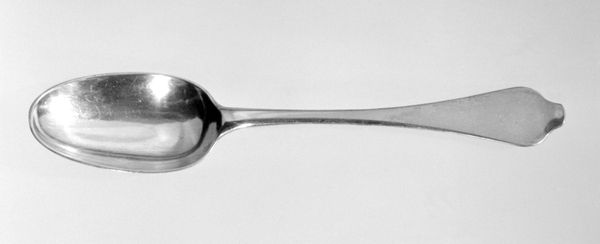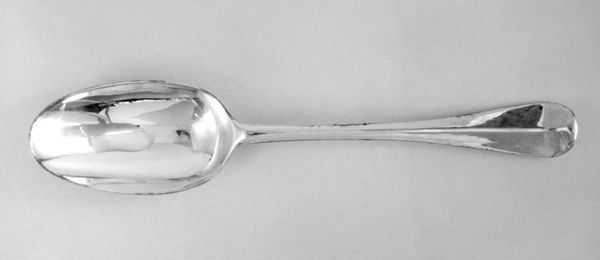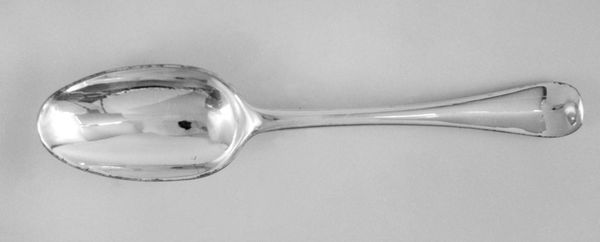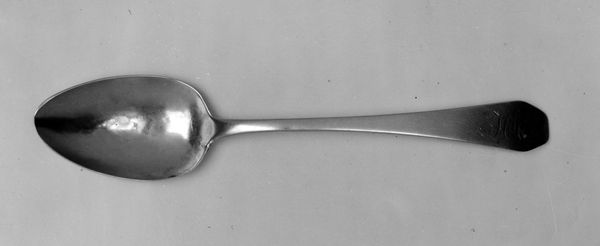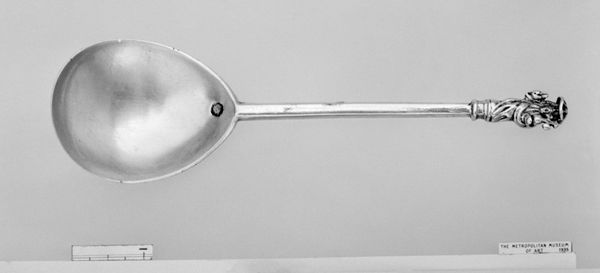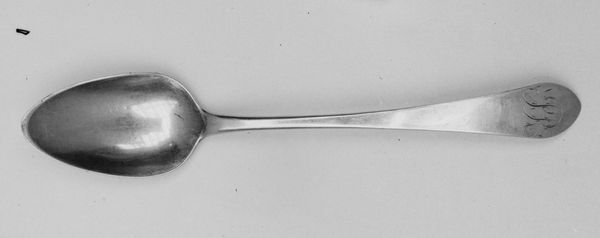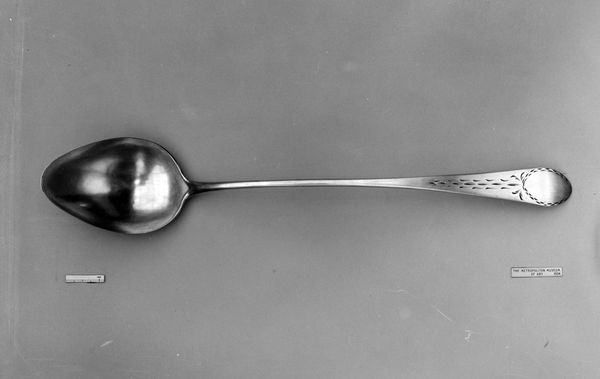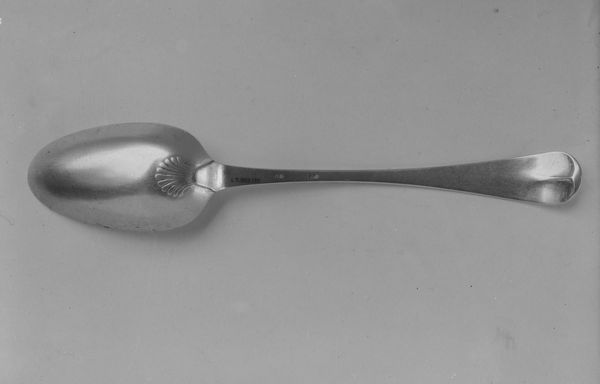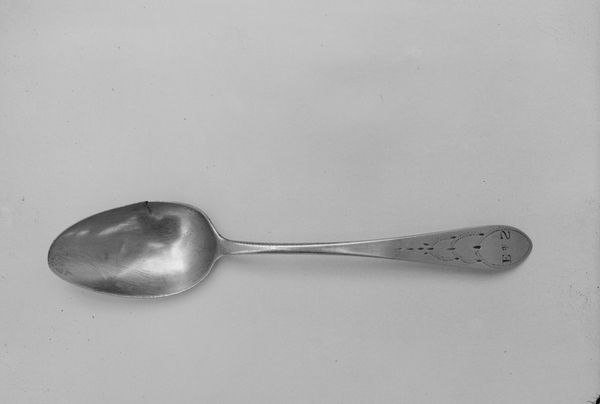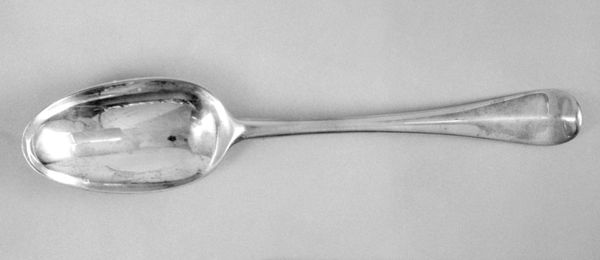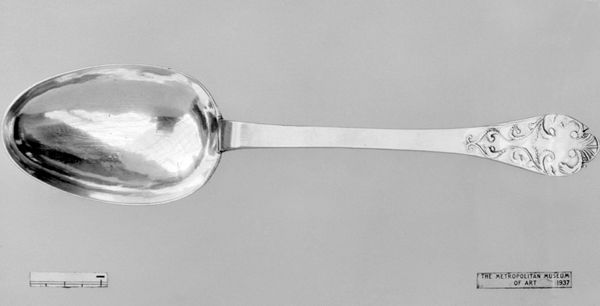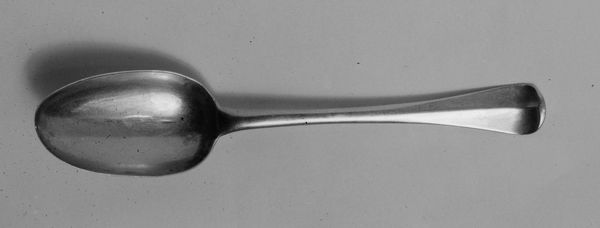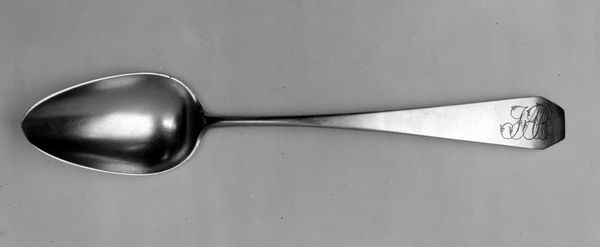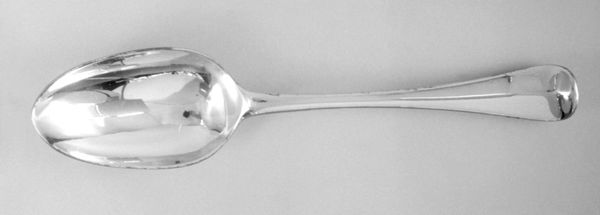
silver, metal, photography
#
silver
#
metal
#
photography
#
united-states
Dimensions: L. 9 5/8 in. (24.4 cm)
Copyright: Public Domain
Editor: Here we have a "Table Spoon" crafted from silver, sometime between 1797 and 1800. The surface is brilliantly reflective, and what strikes me is how something so everyday can be elevated by the craftsmanship and material. How do you see this piece? Curator: For me, this spoon speaks volumes about the labor and industry behind early American domestic life. Silver wasn't exactly a common material, it signifies a certain level of economic privilege tied directly to the availability of raw materials and skilled silversmiths, doesn’t it? What kind of societal structures would need to be in place for this kind of object to even exist? Editor: That's a great point. It suggests a consumer culture and specialized labor beyond just basic survival. But, is it just a symbol of wealth? Couldn’t it also represent an aesthetic sensibility applied even to functional objects? Curator: I see it as inherently intertwined. The aesthetic sensibility *is* part of what drives the desire for such an object. Think of the mining of silver, the smith's workshop and expertise... this isn't simply about a useful object. It is about how this useful object contains labor and exploitation. Editor: So you are saying that focusing on material also prompts a discussion about labor? The value assigned, for instance, is also implicitly an embodiment of hours, even days of intense crafting? Curator: Precisely. And what does that mean for who could afford such a thing? Who made it, under what conditions? What other kinds of tableware would exist alongside this? A seemingly simple spoon actually unlocks a whole network of questions about production and class. Editor: I see what you mean. Examining its materiality has shown me how this spoon embodies the history of labor and wealth distribution in the early United States. I had only thought about aesthetic value before this discussion! Curator: Yes, and sometimes that’s all it takes—looking at the physical reality of an object can open unexpected avenues of inquiry and reveal intricate webs of connections to broader social realities.
Comments
No comments
Be the first to comment and join the conversation on the ultimate creative platform.
